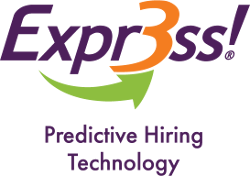Here at Expr3ss!, we’re always working to find new tactics to help your business do better. Staff selection is one of our favourite proven strategies, of course, but that doesn’t mean we’re not interested in other issues that can impact a company’s reputation as well as its bottom line.
One such issue: the consequences of what your employees may be publishing on social media.
In a study published by York College’s Centre for Professional Excellence, half the human resources professionals who participated reported that “IT abuses have increased over the past five years” among new college graduates.
Expr3ss! Asks the Big Question: Do You Have What It Takes?
You’ve worked long and hard to build a solid, trusted reputation for your business. It can all be brought crashing down with one ill-considered, injudicious moment on social media. There are many examples of employees making comments on social media such as Facebook and Twitter that have brought firms into disrepute.
When is the last time you reviewed your company’s social media policy? Do you even have one in place? You should, and here’s why:
Some small to mid-sized businesses take an ostrich-in-the-sand approach to social media. Rather than putting processes in place to protect themselves, they wait until something goes wrong. Unfortunately, the law offers few remedies, and it can be very difficult to protect your reputation through legal recourse.
Introduction to your company’s social media policy should be part of every employee’s ongoing education. It outlines specific corporate guidelines and principles aimed at managing employees communicating in the online world.
Even if your company has no social media presence, employees may be creating one by virtue of their personal posting actions online. Therefore, your social media policy should cover both professional posts on pages associated with your business and personal posts that employees may be uploading to their own Twitter, Instagram, or Facebook page.
If you are looking for some good examples of social media policies from companies like Microsoft, Razorfish, and Intel, the Social Media Governance website has an online database of over 100 social media policies.
Top Sydney Legal Consultant Discusses Risk Management in Social Media
Peter Keel, CEO of the Sydney legal consultancy Ash Street, is recognised as one of Australia’s leading reputation-management specialists. He has decades of experience working with private, public, and non-for-profit enterprises to resolve business disputes. Keel recognises both the value and the dangers presented by social media and urges companies to create social media policies to protect their interests.
One obstacle is that business owners and managers are often what Keel calls “technological luddites.” Out of touch with social media, they don’t understand the phenomenon well enough to create policies that will mitigate risk.
Expr3ss! Presents 5 Key Points for Your Social Media Policy
To help you craft your policy, Expr3ss! has assembled this list of best practices as a guide:
- Specify what the policy covers – Personal and professional posts to blogs, wikis, multi-media, and social networking sites.
- Specify what is off-limits – Be sure to reserve the right to insist that certain subjects are to be avoided, withdraw certain posts, and remove inappropriate comments.
- Specify what is proprietary – Internet postings may not disclose information that is confidential to your company or confidential to a third party that has shared information with your company.
- Require disclaimers – If an employee posts on any aspect of the company’s business, he/she must include a statement along the lines of “I am an employee and these are my personal views, not the views of the company I work for.”
- No unauthorised use of logos and trademarks – Employees should be prohibited from using company graphics without prior permission.
Social media can be leveraged by your employees to help build your company’s brand, and never forget the tremendous risk for individuals to damage (wilfully or accidentally) the business reputation you’ve all worked so hard to achieve.
Ch33rs!

